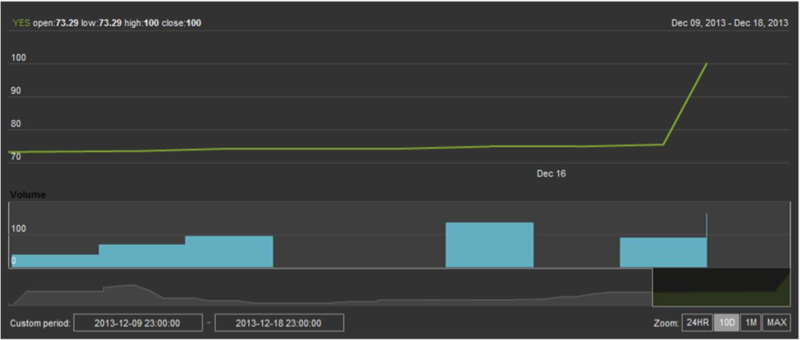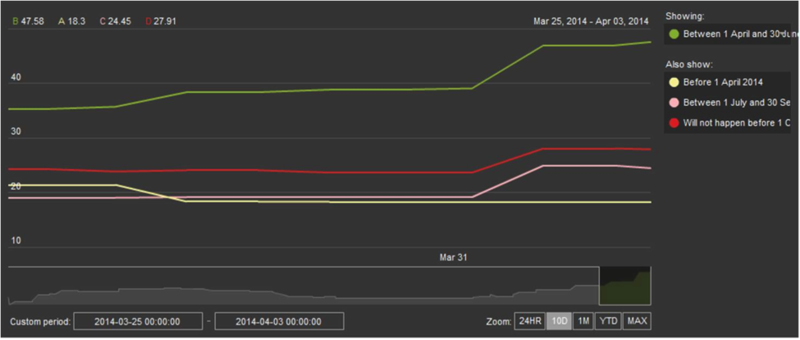May 16, 2014
Since December 2013, the Central African Republic (CAR) has experienced a rapid escalation in armed violence, with nearly 650,000 internally displaced and over 300,000 seeking refuge outside of the country, and a looming humanitarian crisis. Reports call CAR a “hell on earth” with descriptions of wide-spread ethnic violence that is increasingly being described as ethnic cleansing. In the midst of what has occurred on the ground, the Early Warning Project is also examining the accuracy of forecasts derived both from our statistical risk assessment and also from our expert opinion pool. In our statistical risk assessment, CAR was ranked in the top 15 countries most at risk for a state-led mass killing episode, defined as “the deliberate actions of state security forces or other armed groups result in the deaths of at least 1,000 noncombatant civilians over a period of one year or less.”
While we did determine that a mass killing had occurred, initial reports were that perpetrators were former members of a rebel group. Subsequent reports have described multiple perpetrators in violence against civilians so we can’t verify that civilian deaths are a result of state actions. This lack of clear and verifiable information will be a continuing challenge to evaluating our forecasts. This is where our experts opinion pool is especially useful because we can ask about situations not addressed by the statistical forecast. On our question " Before 1 January 2015, will an episode of mass killing occur in the Central African Republic? " our experts performed very well, forecasting over a 76-percent chance of a mass killing episode occurring.

We also asked our Opinion Pool to forecast when they thought the U.N. Security Council would approve a U.N. peacekeeping operation for the Central African Republic; our forecasters were also accurate in favoring the time period of April through June 2014.

It is also tempting to look to our statistical forecasting models for clues as to why a mass killing occurred. For example, could variables like the salience of elite ethnicity and ideology tell us that a conflict might fracture along those same lines? In the Central African Republic, however, the mass killing was perpetrated by multiple groups and was not necessarily state-led. And in fact, there is little agreement as to why the situation deteriorated so quickly. Despite narratives of the conflict breaking down along religious lines, anthropologist and writer Louisa Lombard points to dynamics of foreign intervention, and a fear of foreigners, as central to the situation. Alternatively, a report by the Enough Project cites natural resource exploitation as a driver of conflict in CAR. Journalist Graeme Wood’s dispatch from CAR also looks at regional dynamics and in-fighting among peacekeepers as another driver of conflict. Yet when it comes to examining causes of CAR’s violence, Lombard writes:
The anthropological stock-in-trade is to make sense of social phenomena that at first appear senseless, and yet I have lately been reflecting on whether there might be limits to that approach when it comes to violence as it happens… So as violence is ongoing, I wonder if we should be open to the idea that violence might exceed our attempts to make sense of it.
Looking to CAR’s future, the UN peace keeping operation approved on April 10 is not due to arrive until mid-September. According to the New York Times editorial board,
View All Blog PostsThe United Nations Security Council has acted wisely to authorize a major new peacekeeping force of 10,000 soldiers and 1,800 police officers to Central African Republic. But there is a real risk the new mission, not scheduled to assume authority until Sept. 15, will arrive too late to prevent the country’s partition into separate Christian and Muslim territories, not to mention the utter destruction of the country and the deaths of millions of people. It is imperative that everything be done to move this date forward.
